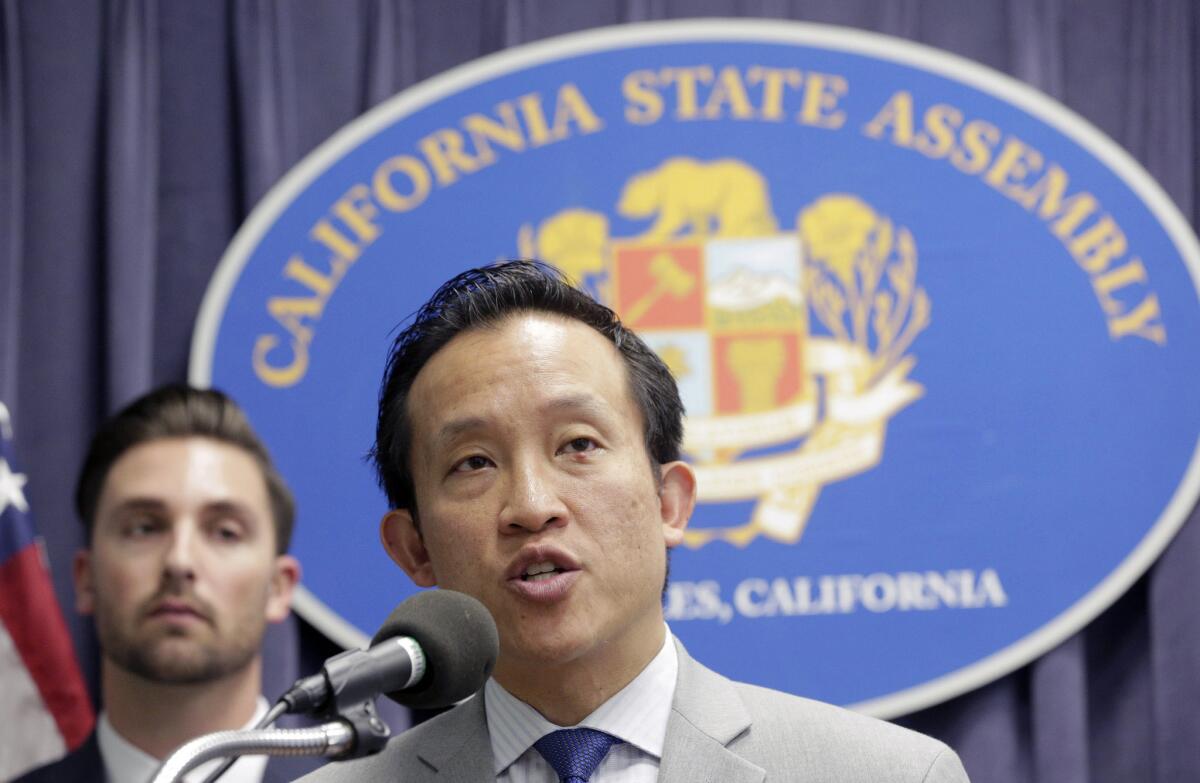Public banks can be formed in California: Newsom signs new law

California cities and counties will be allowed to establish public banks under a controversial bill signed into law Wednesday by Gov. Gavin Newsom, making California only the second U.S. state to allow such institutions.
Public banks are intended to use public funds to let local jurisdictions provide capital at interest rates below those charged by commercial banks. The loans could be used for businesses, affordable housing, infrastructure, and municipal projects, among other things.
Proponents say public banks can pursue those projects and support local communities’ needs while being free of the pressure to obtain higher profits and shareholder returns faced by commercial banks. Support for public banks also has grown since the financial crisis a decade ago and since Wells Fargo & Co. was embroiled in a slew of customer-abuse scandals in recent years.
“Today’s signing sends a strong message that California is putting people before Wall Street profits,” said Assemblyman David Chiu (D-San Francisco), who co-authored the bill (AB 857) with Assemblyman Miguel Santiago (D-Los Angeles).
“We finally have the option of reinvesting our public tax dollars in our communities instead of rewarding Wall Street’s bad behavior,” he said.
The only other state with public banks is North Dakota. Critics of the institutions say a government-owned banking system would be expensive, risky and carry a threat of political influence.
A ballot measure last fall that sought to establish public banks in Los Angeles was defeated by the city’s voters.
“We don’t think the government should be in the business of banking,” said Stuart Waldman, president of the Valley Industry & Commerce Assn., a business advocacy group in the San Fernando Valley that opposed the bill Newsom signed into law Wednesday. “When you look at government programs, be it the DMV or L.A.’s recycling program, the last thing we want is to hand over banks to public employees. It just doesn’t work.”
Proponents of the new statewide law, which will initially cap the number of public banks in California at 10, say there are multiple safeguards in the law to protect the banks’ independence and to ensure they follow specific business plans.
“The approval process will be rigorous,” Chiu’s office said in a statement.
The law provides a path for cities and counties to pursue a public-bank license that has several “checks and balances built in, with layers of oversight and accountability” said Sushil Jacob, a senior attorney with the Lawyers’ Committee for Civil Rights of the San Francisco Bay Area. The committee is part of the California Public Banking Alliance, which pushed for the new law.
For example, the city or county would have to establish a separate corporation with an independent board of directors, and it would have to obtain approval from the Federal Deposit Insurance Corp. to obtain deposit insurance, Jacob said.
The new public bank and its business plan also would need approval from the state Department of Business Oversight, and “the public has to be given the opportunity to weigh in on the [bank’s] viability study before a local agency can approve it,” he said.
“There also are startup costs involved, such as hiring consultants and developing a business plan,” and it’s expected that the state’s largest cities and counties, such as Los Angeles and San Francisco, would be among the first jurisdictions to apply, Jacob said.
The process likely would take one to two years, he added.
“This new law prioritizes communities and neighborhoods by empowering localities to use public dollars for their own public good: from investing in affordable housing projects and building new schools and parks, to accessible loans for students and businesses,” Santiago, the bill’s co-author, said in a statement.
More to Read
Inside the business of entertainment
The Wide Shot brings you news, analysis and insights on everything from streaming wars to production — and what it all means for the future.
You may occasionally receive promotional content from the Los Angeles Times.











